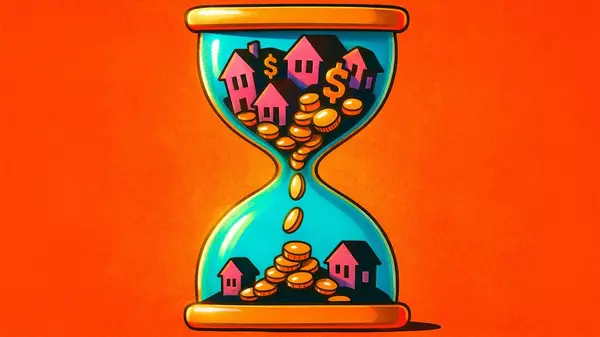Ron DeSantis Is Serious About Ending Property Taxes in Florida—but Will It Work and Who Will Pay the $40 Billion Difference?


Mario Tama/Getty Images
Florida Gov. Ron DeSantis is doubling down on his push to eliminate property taxes in the state, raising questions about how key services would be funded if the effort is successful.
At a press conference on Monday, DeSantis reiterated his support for measures to limit or ban the collection of property taxes at the local level in Florida, which bring in more than $40 billion for the state each year.
“Just for being on your property, you’ve got to write a check to the government every year, so you’re basically paying rent to the government to live on your own property,” he said. “We’re going to be really looking at ways to bring people relief from that, because I think it’s been really something that’s pinching a lot of homeowners, particularly seniors on fixed income.”
The proposal is a bold one. Currently, every state in the nation has taxes on real estate, which are typically governed by state law but set and collected at the local level.
In Florida and elsewhere, property taxes fund schools, infrastructure, and emergency services—the kinds of local government services that tend to boost home values significantly when they are functioning properly.
DeSantis’ proposal drew quick support from his Republican allies in the Florida state legislature, who have put forward two bills in recent days aimed at reducing or eliminating property taxes.
But it also drew quick condemnation from many city and county officials across the state, who questioned how vital services would be funded without property tax revenue.
“Something close to 100% of the cost of our police and fire departments here in Oviedo are funded by property taxes,” Oviedo Mayor Megan Sladek wrote on Facebook. “Until public safety is figured out, I think ditching property taxes is a dumb idea.”
How much are property taxes in Florida?
The average property tax rate in Florida is 1.14%, which is right in the middle of all states, according to real estate analytics firm CoreLogic.
In 2024, Florida homeowners’ annual median tax amount was $3,100, making the state the 20th most expensive in the nation for property taxes.
But some Florida homeowners have seen some of the largest hikes to their property taxes in the nation in recent years.
In Broward County, median property taxes have jumped 57% since 2019, an annual increase of $1,619 and the biggest percentage gain in the nation, according to CoreLogic. Home prices in Broward are up nearly 60% in the same period.
Property taxes in Miami-Dade County have also risen sharply, gaining 50% since 2019, while home values there gained 59%.
Overall in Florida, the median homeowner’s property taxes have increased by 9.5% per year since 2019, while home prices there have shot up by 14.6% annually.
“As property values and property tax payments rise, it’s natural that homeowners would take notice,” says Realtor.com® Chief Economist Danielle Hale.
“But property taxes that are low and widespread are some of the most efficient ways to raise revenue to cover services provided by states and local governments,” she adds. “A key question that Florida will have to answer is, if not property taxes, what’s the alternative? And is that better?”
If Florida property taxes are eliminated, who will pay the difference?
Numerous economic studies have found that property taxes are among the least damaging forms of taxation—in other words, taxes on real property have less of a negative impact on economic growth when compared to the same revenue raised by sales or income taxes.
Florida is one of seven states that has no income tax, meaning that if property taxes were eliminated, sales taxes, fines, and fees would be the main ways to make up the difference.
Florida already has a 6% general sales tax, and the Florida Policy Institute estimates that it would have to be doubled to 12% to make up the revenue shortfall from eliminating property taxes.
A 12% sales tax would be the highest in the nation, and FPI argues that such a high tax on basic goods and services would “disproportionately and negatively” impact households with low to moderate incomes.
Tourists, who contribute 14% of all sales tax revenue, and businesses, who pay 20%, would also be hard-hit by the increase, the think tank said.
However, DeSantis responded to the FPI report by insisting that he would not raise sales taxes.
“I’m pretty sure the Legislature would not raise the sales tax and I’m quite certain I’d veto any increase,” DeSantis commented on X.
That leaves open the question of how Florida would continue to fund schools and essential services if the state did away with property taxes.
It’s a question one of the bills pending in the Florida Legislature would try to answer by commissioning a study on how to fill the budget gap for local governments, if the state bans property taxes.
According to FPI, Florida would have to come up with about $43 billion in new annual revenue or spending cuts to make up the difference from lost property tax revenue—or about $2,000 per resident.
FPI estimated that property taxes accounted for 18% of county revenue, 17% of municipal revenue, and 50%-60% of school district revenue in the state.
“The real property tax strengthens their ability to address local needs, including fire and police services, education, and safety net programs,” FPI policy analyst Esteban Leonardo Santis wrote in a recent report.
“The tax has proved remarkably resilient and capable of being tailored to local interests, and it survives as the most important source of revenue in local governments primarily because of its stability.”
Categories
Recent Posts









"My job is to find and attract mastery-based agents to the office, protect the culture, and make sure everyone is happy! "
